第55章 READING AND STUDYING(1)
My return to mill-work involved making acquaintance with a new kind of machinery.The spinning-room was the only one I had hitherto known anything about.Now my sister Emilie found a place for me in the dressing-room,beside herself.It was more airy,and fewer girls were in the room,for the dressing-frame itself was a large,clumsy affair,that occupied a great deal of space.
Mine seemed to me as unmanageable as an overgrown spoilt child.
It had to be watched in a dozen directions every minute,and even then it was always getting itself and me into trouble.Ifelt as if the half-live creature,with its great,groaning joints and whizzing fan,was aware of my incapacity to manage it,and had a fiendish spite against me.I contracted an unconquer-able dislike to it;indeed,I had never liked,and never could learn to like,any kind of machinery.And this machine finally conquered me.It was humiliating,but I had to acknowledge that there were some things I could not do,and I retired from the field,vanquished.
The two things I had enjoyed in this room were that my sister was with me,and that our windows looked toward the west.When the work was running smoothly,we looked out together and quoted to each other all the sunset-poetry we could remember.Our tastes did not quite agree.Her favorite description of the clouds was from Pollok:--"They seemed like chariots of saints,By fiery coursers drawn;as brightly hued As if the glorious,bushy,golden locks Of thousand cherubim had been shorn off,And on the temples hung of morn and even."I liked better a translation from the German,beginning "Methinks it were no pain to die On such an eve,while such a sky O'ercanopies the west."And she generally had to hear the whole poem,for I was very fond of it;though the especial verse that I contrasted with hers was,--"There's peace and welcome in yon sea Of endless blue tranquillity;Those clouds are living things;I trace their veins of liquid gold,And see them silently unfold Their soft and fleecy wings."Then she would tell me that my nature inclined to quietness and harmony,while hers asked for motion and splendor.I wondered whether it really were so.But that huge,creaking framework beside us would continually intrude upon our meditations and break up our discussions,and silence all poetry for us with its dull prose.
Emilie found more profitable work elsewhere,and I found some that was less so,but far more satisfactory,as it would give me the openings of leisure which I craved.
The paymaster asked,when I left,"Going where on can earn more money?""No,"I answered,"I am going where I can have more time.""Ah,yes!"he said sententiously,"time is money."But that was not my thought about it."Time is education,"I said to myself;for that was what I meant it should be to me.
Perhaps I never gave the wage-earning element in work its due weight.It always seemed to me that the,Apostle's idea about worldly possessions was the only sensible one,--"Having food and raiment,let us be therewith content."If I could earn enough to furnish that,and have time to study besides,--of course we always gave away a little,however little we had,--it seemed to me a sufficiency.At this time I was receiving two dollars a week,besides my board.Those who were earning much more,and were carefully "laying it up,"did not appear to be any happier than I was.
I never thought that the possession of money would make me feel rich:it often does seem to have an opposite effect.But then,Ihave never had the opportunity of knowing,by experience,how it does make one feel.It is something to have been spared the responsibility of taking charge of the Lord's silver and gold.
Let us be thankful for what we have not,as well as for what we have!
Freedom to live one's life truly is surely more desirable than any earthly acquisition or possession;and at my new work I had hours of freedom every day.I never went back again to the bondage of machinery and a working-day thirteen hours long.
The daughter of one of our neighbors,who also went to the same church with us,told me of a vacant place in the cloth-room,where she was,which I gladly secured.This was a low brick building next the counting-room,and a little apart from the mills,where the cloth was folded,stamped,and baled for the market.
There were only half a dozen girls of us,who measured the cloth,and kept an account of the pieces baled,and their length in yards.It pleased me much to have something to do which required the use of pen and ink,and I think there must be a good many scraps of verse buried among the blank pages of those old account-books of that found their way there during the frequent half-hours of waiting for the cloth to be brought in from the mills.
The only machinery in the room was a hydraulic arrangement for pressing the cloth into bales,managed by two or three men,one of whom was quite a poet,and a fine singer also.His hymns were frequently in request,on public occasions.He lent me the first volume of Whittier's poems that I ever saw.It was a small book,containing mostly Antislavery pieces."The Yankee Girl"was one of them,fully to appreciate the spirit of which,it is necessary to have been a workink-girl in slave-labor times.New England Womanhood crowned Whittier as her laureate from the day of his heroine's spirited response to the slaveholder:--"0,could ye have seen her--that pride of our girls--Arise and cast back the dark wealth of her curls,With a scorn in her eye that the gazer could feel,And a glance like the sunshine that flashes on steel!